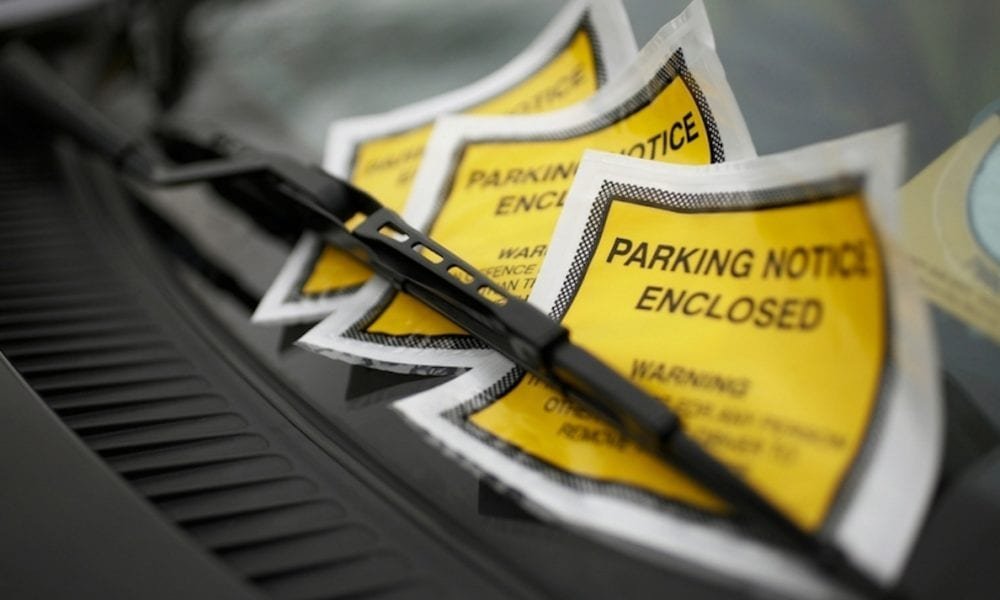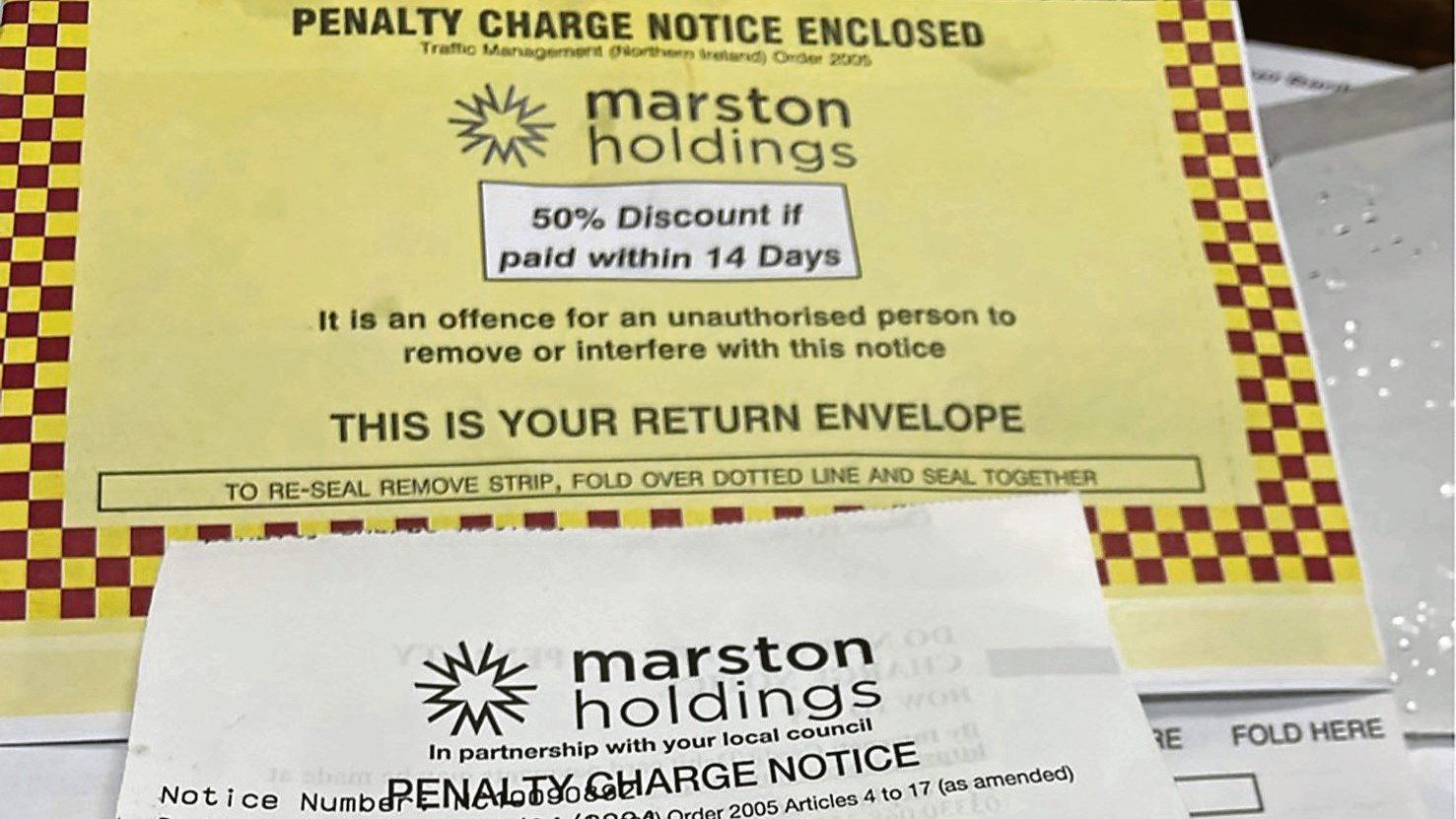Receiving a parking fine in Northern Ireland can be a frustrating experience, especially if you believe it was issued unfairly. Whether it’s a Penalty Charge Notice (PCN) from a local council or a Parking Charge Notice from a private parking operator, understanding the appeal process is crucial to challenging the fine effectively. This detailed guide covers everything you need to know about appealing parking fines in Northern Ireland, including the types of fines, grounds for appeal, step-by-step procedures, evidence requirements, potential risks, and practical tips to maximize your chances of success.
Understanding Parking Fines in Northern Ireland
In Northern Ireland, parking fines are issued for violations of parking regulations and come in two main forms:
Penalty Charge Notice (PCN):
Issuer: Issued by the Department for Infrastructure (DfI) or local councils (since April 1, 2024, council-owned car parks are managed by private operators, but PCNs remain valid under DfI rules).
Where: Public land, such as on-street parking bays, council car parks, bus lanes, yellow box junctions, or restricted areas like double yellow lines.
Cost: £90, reduced to £45 if paid within 14 days.
Legal Status: Enforceable under the Traffic Management (Northern Ireland) Order 2005, with non-payment leading to potential debt recovery, vehicle clamping, or court action.
Parking Charge Notice (PCN):
Issuer: Private parking operators managing car parks on private land, such as supermarkets, retail parks, or private residential estates.
Where: Private car parks or land where parking is regulated by the landowner’s terms and conditions.
Cost: Typically up to £100 (per British Parking Association (BPA) or International Parking Community (IPC) rules), with discounts (40–60%) for early payment within 14 days.
Legal Status: Not legally enforceable like council PCNs; treated as invoices for breaching the car park’s terms. Non-payment may lead to civil court action or debt recovery.
Distinguishing between these two types is critical, as the appeal processes differ significantly. Check the ticket for wording: “Penalty Charge Notice” indicates a council/DfI fine, while “Parking Charge Notice” suggests a private operator. The appeal process for each is outlined below, with specific steps and considerations.
Grounds for Appealing a Parking Fine
You can appeal a parking fine if you believe it was issued incorrectly or unfairly. Common grounds for appeal include:
Unclear or Inadequate Signage: Signs were missing, faded, obscured (e.g., by trees), too small, or not visible at night. For private car parks, signs must clearly state the terms and conditions.
Incorrect Details on the Ticket: Errors in the vehicle registration, date, time, or location of the alleged violation.
No Parking Violation Committed: You were within the permitted time, paid for parking, or parked correctly according to the rules.
Mitigating Circumstances: For example, a medical emergency, vehicle breakdown, or disability preventing you from returning to your vehicle.
Someone Else Was Driving: If you’re the registered keeper but weren’t driving, you may not be liable (especially for private Parking Charge Notices, as the Protection of Freedoms Act 2012 does not apply in Northern Ireland).
Broken Parking Meter/Machine: No alternative payment method was available, and you couldn’t pay due to equipment failure.
Blue Badge Exemptions: Blue Badge holders may be exempt in certain situations, such as parking in NHS car parks or on-street disabled bays, if the badge was displayed correctly.
Loading/Unloading: You were legally loading or unloading, which is an exemption under certain conditions (e.g., continuous activity, vehicle not left unattended for long).
Excessive Charges: For private Parking Charge Notices, charges exceeding £100 are often appealable unless the operator justifies the loss. For council PCNs, being charged the higher band (£90) when a lower band (£45) applies.
Always gather evidence to support your appeal, such as photos of unclear signs, parking receipts, witness statements, or proof of a breakdown (e.g., mechanic’s report).

Step-by-Step Guide to Appealing a Penalty Charge Notice (DfI/Council)
Step 1: Informal Challenge (Within 14 Days)
When to Act: Within 14 days of receiving the PCN (on your windscreen, by post, or in person). Acting within this period freezes the £45 discounted rate while the challenge is considered.
How to Challenge:
Online: Use the DfI’s online portal at nidirect.gov.uk to submit your challenge. You’ll need the PCN number and vehicle registration.
In Writing: Send a letter to the Parking Enforcement Processing Unit (PEPU), PO Box 134, Coleraine, BT52 9AF, or email as specified on the ticket.
What to Include:
PCN number, vehicle registration, and your contact details.
A clear explanation of why the ticket was unfair (e.g., unclear signage, no violation).
Supporting evidence, such as photos of signs, parking tickets, or receipts.
Avoid admitting fault or paying the fine, as payment is considered acceptance of the violation.
Outcome: The PEPU will review your challenge and respond in writing. If successful, the PCN is cancelled. If rejected, you’ll receive a new deadline to pay the £45 discounted rate or proceed to a formal appeal.
Step 2: Formal Representation (Within 28 Days of Notice to Owner)
When to Act: If your informal challenge is rejected or you received a PCN by post, you’ll get a Notice to Owner (NtO). You have 28 days from receiving the NtO to submit a formal representation.
How to Submit:
Use the NtO form provided, clearly stating your grounds for appeal.
Send it to the PEPU address or online portal as instructed.
Include additional evidence if available (e.g., new photos, witness statements, or proof of mitigating circumstances).
Outcome:
If accepted, the PCN is cancelled.
If rejected, you’ll receive a Notice of Rejection with instructions for appealing to the Northern Ireland Traffic Penalty Tribunal (NITPT). At this stage, the discount is lost, and you’ll owe the full £90 if the appeal fails.
Step 3: Appeal to the Northern Ireland Traffic Penalty Tribunal
When to Act: Within 28 days of receiving the Notice of Rejection.
Process:
Contact the NITPT at the Northern Ireland Courts and Tribunals Service, 2nd Floor, Royal Courts of Justice, Chichester Street, Belfast, BT1 3JF, or use their online appeal system.
Choose between a personal hearing (in Belfast, informal setting with an adjudicator, DfI representative, and yourself) or a postal appeal (decided based on written evidence).
Submit all evidence, including previous correspondence, photos, and a detailed explanation. A solicitor can assist for complex cases, though it’s not required.
Adjudicator’s Role: The NITPT adjudicator, a qualified solicitor or barrister with at least 5 years’ experience, reviews evidence from both parties and makes a binding decision.
Outcome:
If successful, the PCN is cancelled, and no payment is required.
If unsuccessful, you must pay the £90 within 28 days, or a Charge Certificate increases the fine to £135. Non-payment may lead to debt recovery or vehicle clamping.
Further Steps: If you believe the process was flawed (e.g., procedural error), you can submit a Statutory Declaration within 21 days of a Charge Certificate, claiming you didn’t receive the NtO, Notice of Rejection, or adjudicator’s decision. This is reviewed by the NITPT and may reset the process.
Step 4: Magistrates’ Court (Last Resort)
When to Act: If all appeals fail and you still believe the PCN was unfair, you can request a hearing in a magistrates’ court. This is rare, expensive, and risky.
Risks: If you lose, the fine increases by 50% (£135), plus court costs. Legal advice is strongly recommended (contact Citizens Advice or a solicitor like H McPartland & Sons).
Process: You’ll receive a summons to attend court and plead not guilty. Provide all evidence to support your case.
Step-by-Step Guide to Appealing a Parking Charge Notice (Private Operator)
Step 1: Informal Appeal (Within 14–28 Days)
When to Act: Within 14 days for the discounted rate (40–60% off, typically £40–60) or 28 days for a full appeal, depending on the operator’s terms.
Check Operator’s Status:
Verify if the operator is a member of an Accredited Trade Association (ATA) like the British Parking Association (BPA) or International Parking Community (IPC). Check their websites or call BPA (01444 447 300).
If not an ATA member, do not contact them unless they write to you first, as they cannot legally access your details from the DVLA. Report non-ATA operators who send postal tickets to Action Fraud, as they may have obtained your details illegally.
How to Appeal:
Write to the operator (address on the ticket or their website) or use their online appeal form.
If the car park is owned by a business (e.g., a supermarket), contact the landowner to request withdrawal of the ticket.
Include your PCN number ejected, vehicle registration, and evidence (e.g., photos of unclear signs, parking receipts, or proof you weren’t the driver).
Use a template appeal letter from the Consumer Council (www.consumercouncil.org.uk) or Citizens Advice.
Outcome: The operator has 56 days to respond. If they reject your appeal or don’t respond, proceed to a formal appeal if the operator is an ATA member.
Step 2: Formal Appeal to an Independent Appeals Service
When to Act: Within 28 days (BPA) or 21 days (IPC) of the informal appeal rejection.
Process:
For BPA members, appeal to Parking on Private Land Appeals (POPLA) via their website.
For IPC members, appeal to the Independent Appeals Service (IAS) online.
Submit all evidence, including a detailed letter explaining your case. The Consumer Council’s template letter can be adapted for this stage.
Outcome:
If successful, the charge is cancelled.
If unsuccessful, you must pay the full amount (up to £100) or face potential civil court action.
Step 3: Small Claims Court (If Pursued by Operator)
When to Act: If you refuse to pay after a rejected appeal, the operator may pursue you through the Small Claims Court.
Risks: You may owe the fine plus court costs if you lose. Legal advice is recommended.
Note: In Northern Ireland, the Protection of Freedoms Act does not apply, so the registered keeper is not automatically liable for private PCNs unless they were the driver. If you weren’t driving, state this clearly in your appeal.
Key Tips for a Successful Appeal
Act Quickly:
Submit your informal appeal within 14 days to preserve the discount for council PCNs or private Parking Charge Notices. Missing deadlines may result in a higher fine.
For council PCNs, the discount period is frozen during an informal appeal, giving you a new deadline if rejected.
Gather Strong Evidence:
Photos: Take pictures of unclear, missing, or obscured signs, road markings, or your correctly parked vehicle.
Receipts/Tickets: Provide proof of payment or a valid parking ticket.
Witness Statements: Obtain statements from passengers or bystanders to support your case.
Other Evidence: Include breakdown reports, medical records, or Blue Badge photos if applicable.
Be Clear and Concise:
Clearly state your grounds for appeal (e.g., “The signage was obscured by a tree, as shown in the attached photo”).
Avoid emotional language; stick to facts and evidence.
Use template letters from the Consumer Council or Citizens Advice for structure.
Check the Operator’s Credentials:
For private PCNs, ensure the operator is an ATA member. Non-ATA operators may not have legal access to your details, weakening their case.
Report suspicious non-ATA operators to Action Fraud.
Avoid Payment Until the Appeal is Resolved:
Paying a fine is considered admitting guilt, closing the case and preventing further appeals.
If you’re concerned about non-payment, contact the issuer to confirm that appealing suspends payment obligations.
Consider Legal Advice for Complex Cases:
For tribunal or court appeals, consult a solicitor (e.g., H McPartland & Sons) or Citizens Advice for guidance, especially if the case involves significant evidence or legal complexity.
Know the Risks of Non-Payment:
For council PCNs, non-payment after a failed appeal can lead to a £135 fine, debt recovery, or clamping.
For private PCNs, non-payment may result in court action, with potential costs added to the fine.
Specific Considerations for Northern Ireland
Private Parking Operators in Council Car Parks: Since April 1, 2024, council car parks are managed by private operators, but PCNs are still issued under DfI regulations. Follow the council PCN appeal process for these.
No Protection of Freedoms Act: Unlike England and Wales, Northern Ireland does not hold registered keepers automatically liable for private PCNs. If you weren’t the driver, emphasize this in your appeal, as operators must prove the driver’s identity.
Blue Badge Holders: Exemptions apply in NHS car parks and certain on-street bays. Ensure your badge was displayed correctly and include a photo in your appeal.
Cross-Border Enforcement: Under a cross-border agreement with Ireland, unpaid fines may be pursued across the border. Ensure timely appeals to avoid complications.
Potential Risks and Costs
Council PCNs:
Informal and formal appeals are free, and the discount is preserved during an informal appeal.
Tribunal appeals are free, but a failed appeal means paying the full £90 (or £135 if a Charge Certificate is issued).
Magistrates’ court appeals are costly (court fees plus a potential 50% fine increase to £135).
Private Parking Charge Notices:
Appeals to POPLA or IAS are free within the specified timeframes.
Court action by the operator may involve legal fees and additional costs if you lose.
Non-ATA operators may struggle to enforce fines legally, but don’t ignore legitimate claims from ATA members.
Resources and Support
Northern Ireland Traffic Penalty Tribunal: Contact for tribunal appeals at 2nd Floor, Royal Courts of Justice, Chichester Street, Belfast, BT1 3JF, or online. Open 09:15–16:45, Monday to Friday, except holidays.
Consumer Council (www.consumercouncil.org.uk): Offers a template appeal letter and advice on private PCNs.
Citizens Advice (www.citizensadvice.org.uk): Provides guidance and template letters for both council and private PCNs.
DfI/NI Direct (www.nidirect.gov.uk): Official portal for challenging council PCNs and accessing PCN details.
BPA/IPC Websites: Verify if a private operator is an ATA member.
H McPartland & Sons Solicitors (hmcpartlandandsons.co.uk): For legal support in complex cases.
Contend Legal (contend.legal): AI-based legal advice for parking ticket appeals.
Action Fraud: Report non-ATA operators who may have obtained your details illegally.
Practical Example: Sample Appeal Scenario
Scenario: You receive a £90 PCN from the DfI for parking on a double yellow line near Belfast City Centre. You believe the signage was unclear due to a faded sign.
Steps:
Within 14 Days: Submit an informal challenge online at nidirect.gov.uk, including:
PCN number and vehicle registration.
A statement: “The double yellow lines were faded and not clearly visible at night, as shown in the attached photos.”
Photos of the faded lines and surrounding area.
If Rejected: Receive a Notice of Rejection and NtO. Submit a formal representation within 28 days, reiterating the issue and adding a witness statement from a passenger.
If Further Rejected: Appeal to the NITPT within 28 days, requesting a postal appeal. Include all evidence and a clear explanation. If successful, the PCN is cancelled; if not, pay £90 within 28 days to avoid a £135 fine.
For a Private PCN: If the ticket is from a supermarket car park, check if the operator is a BPA/IPC member. Submit an informal appeal with evidence (e.g., a parking receipt showing you were within the time limit). If rejected, appeal to POPLA/IAS within the specified timeframe.
Appealing a parking fine in Northern Ireland is a structured process that, if approached correctly, can lead to the cancellation of an unfair ticket. Whether dealing with a council-issued Penalty Charge Notice or a private Parking Charge Notice, act quickly, gather robust evidence, and follow the appropriate steps—informal challenge, formal representation, and tribunal appeal for council PCNs, or informal and independent appeals for private PCNs. Be cautious of non-ATA private operators and leverage resources like the Consumer Council, Citizens Advice, and the NITPT. With careful preparation and clear communication, you can navigate the appeal process confidently and potentially avoid paying an unjust fine.
For further assistance, visit nidirect.gov.uk, contact the Consumer Council, or consult a solicitor for complex cases. Drive safely and park wisely!









